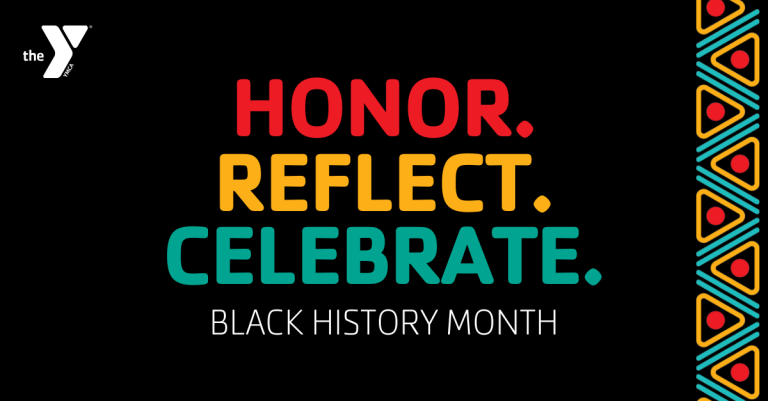
The history of the YMCA – like the history of the United States – is a story of incremental progress toward greater inclusion and equity for all. As we celebrate Black History Month, we are honoring the stories of Black leaders who helped move the Y – and America – forward.
Anthony Bowen
A former enslaved man and the first Black American to become a clerk in the U.S. Patent Office, Anthony Bowen founded the first YMCA for the Black community in Washington, D.C., in 1853, eight years before the Civil War. Additional Black Ys and college chapters were established in the following decades, with membership reaching 28,000 nationwide by the mid-1920s.
William Hunton
The son a freed enslaved person from Canada, William Hunton began his Y work in 1888 as the first employed YMCA secretary at a “Colored YMCA” in Norfolk, VA. Hunton worked among the soldiers in the Army camps during the Spanish-American War and in developing Student YMCAs on Black campuses throughout the South. He helped communities meet Julius Rosenwald’s challenge grant to build YMCAs for Black communities, and then helped recruit and train the staff and volunteers to lead those associations.
Carter Woodson
In 1915, at the Wabash Avenue YMCA in Chicago, Carter Woodson organized the Association for the Study of Negro Life and History, which researched and celebrated the achievements of Black Americans. This led to his starting Negro History Week, the precursor to Black History Month.
Madam C.J. Walker
An entrepreneur, philanthropist and social activist, Madam C.J. Walker was one of the first self-made female American millionaires. She escaped poverty and built a company selling hair care products, which also gave her sales agents an income of their own. Walker was a philanthropic supporter of the YMCA and participated in and financially supported the NAACP’s anti-lynching movement.
Jackie Robinson
In 1947, Jackie Robinson broke the color barrier and became the first Black major league baseball player. This same year he also became a volunteer boys coach at the Harlem YMCA with fellow coach and teammate Roy Campanella.
Leo B. Marsh
In 1954, Dr. Leo B. Marsh became the first Black president of the Association of YMCA Secretaries. In 1971, Marsh brought the Black Achievers program (created by Quentin R. Mease at the South Central YMCA of Houston) to the Harlem YMCA. With the help of volunteer adult mentors, the Achievers program helps youth of color succeed in school and develop a positive sense of self.
Jesse Alexander
After starting his YMCA career an outreach worker with youth, in 1969, Jesse Alexander joined the National Council of YMCAs as where he helped organize the National Conference of Black and Non-White Laymen and Staff, which dealt with supporting efforts to overcome racism in the YMCA and ensuring that YMCA organizations existed where communities of color wanted them.
Violet P. Henry
After holding various executive leadership roles in the Newark and Chicago YMCAs, in 1976, Violet P. Henry became the first woman to be named to a top management position at the Y’s national office. She provided leadership for numerous national and international commissions and committees that worked for the rights of women and people of color.
Kevin Washington
In 2015, Kevin Washington became the first African American – and the first person of color – to serve as CEO of the YMCA of the USA. Besides reimagining a new service delivery system across the Y movement, Washington was a leading national voice for relief from federal government for nonprofits devastated by the COVID-19 pandemic. He spearheaded the highly successful #Relief4Charities effort, put Y-USA on a path to become an anti-racist, multicultural organization and engaged young people as changemakers in their communities.
Visit the YMCA Archives to learn more about the history of Black leadership in the YMCA.
